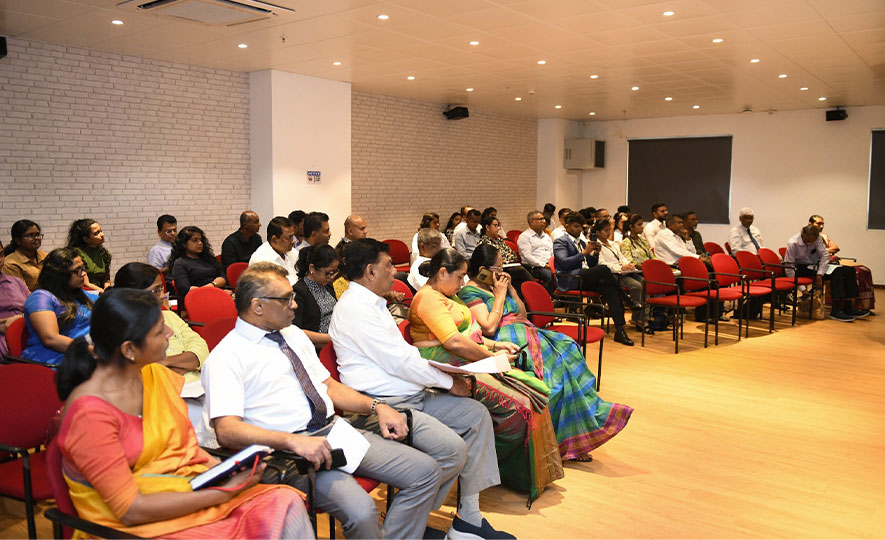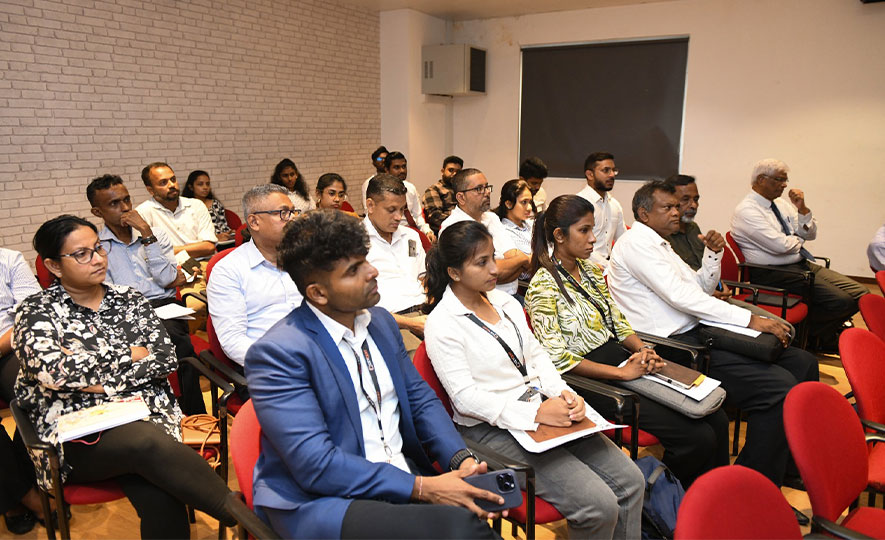A Stakeholder Awareness Program on the recent revisions to the Sri Lankan Organic Standard and Regulatory Framework was successfully held at the Sri Lanka Export Development Board (EDB).
The event was organized by the National Organic Control Unit (NOCU) of the EDB, in collaboration with the Sri Lanka Standards Institution (SLSI) and the United Kingdom Trade Partnership (UKTP) Program. The objective of the session was to inform and educate organic sector stakeholders on the recent updates made to national organic regulations and standards.
Delivering the keynote address, Mr. Mangala Wijesinghe, Chairman and Chief Executive Officer of the EDB, emphasized the importance of aligning Sri Lanka’s organic certification and regulatory systems with international benchmarks. He highlighted that such efforts are essential for maintaining credibility in global markets and for ensuring continued growth in the organic agriculture sector.
Mr. Wijesinghe noted that Sri Lanka’s organic agricultural export sector has seen significant growth over the past three decades, contributing valuable foreign exchange to the country. He stated that the global organic market is valued at approximately EUR 136.4 billion, with Sri Lanka earning over USD 500 million annually as a trusted supplier of certified organic agricultural products.
He further highlighted that nearly 400 certified organic exporters in Sri Lanka operate under various international certification standards such as Sri Lankan, EU, USDA, JAS, Demeter, and Naturland, collectively covering more than 70,000 hectares of agricultural land. Additionally, over 20,000 farmers have been certified as organic, organized under exporter and processor-based farmer groups.

The technical session was led by Ms. Ganiesha De Silva, Assistant Director at SLSI, who provided a detailed overview of the revisions made to the National Standard on Organic Agriculture (SLS 1324:2018). Following this, Ms. Vinoka Perera, Assistant Director at NOCU, presented the key updates to the national organic regulatory framework, discussing their implications for stakeholders involved in certification, production, and export.

The program attracted a wide array of participants from the organic farming community, certification bodies, exporters, and regulatory agencies. It served as a valuable platform for knowledge sharing and stakeholder engagement, reinforcing Sri Lanka’s commitment to upholding internationally recognized standards in organic agriculture.